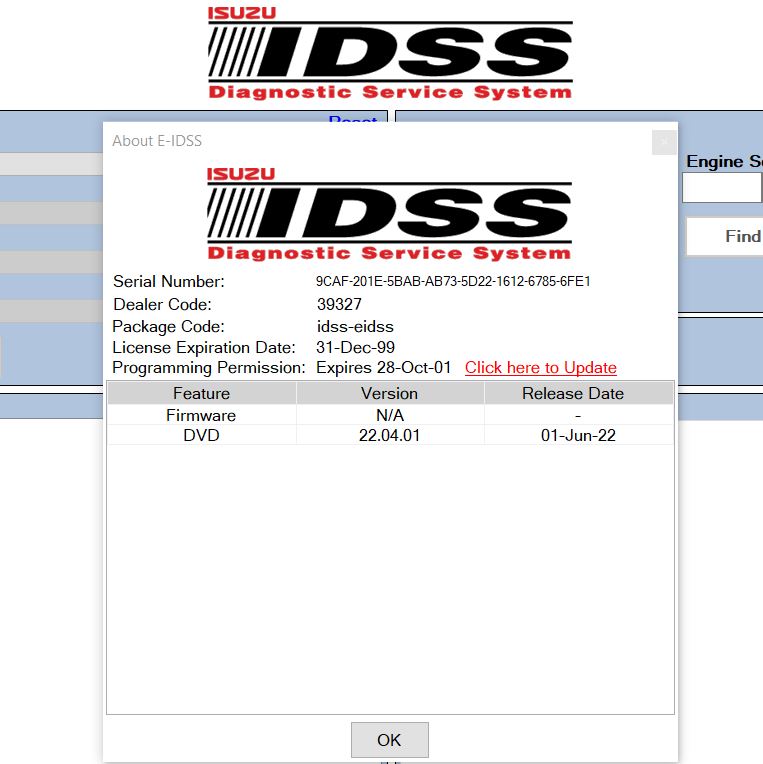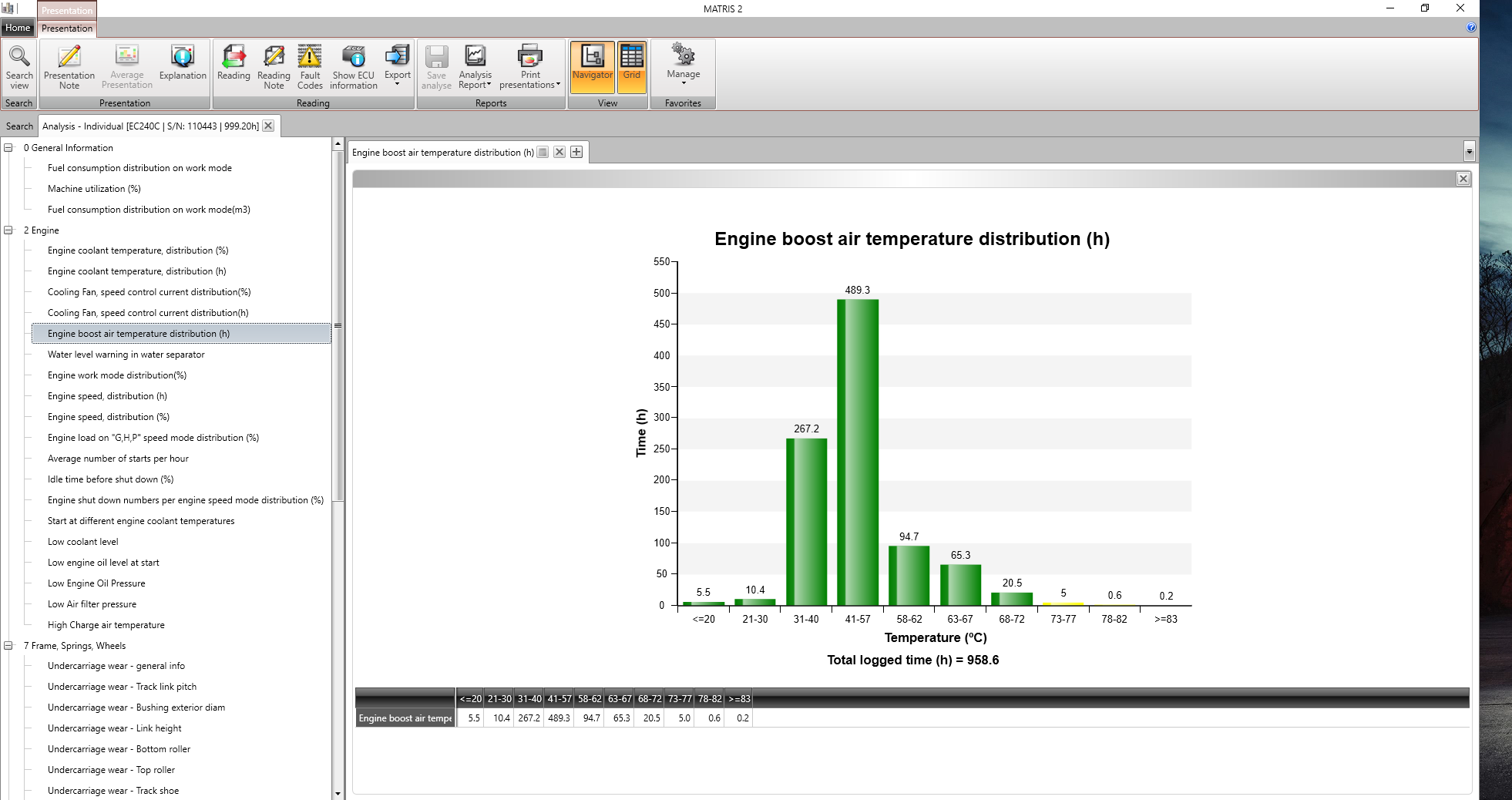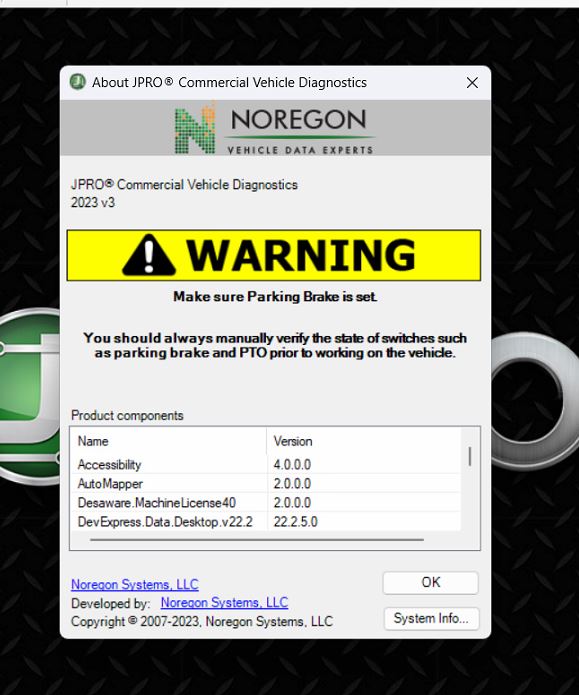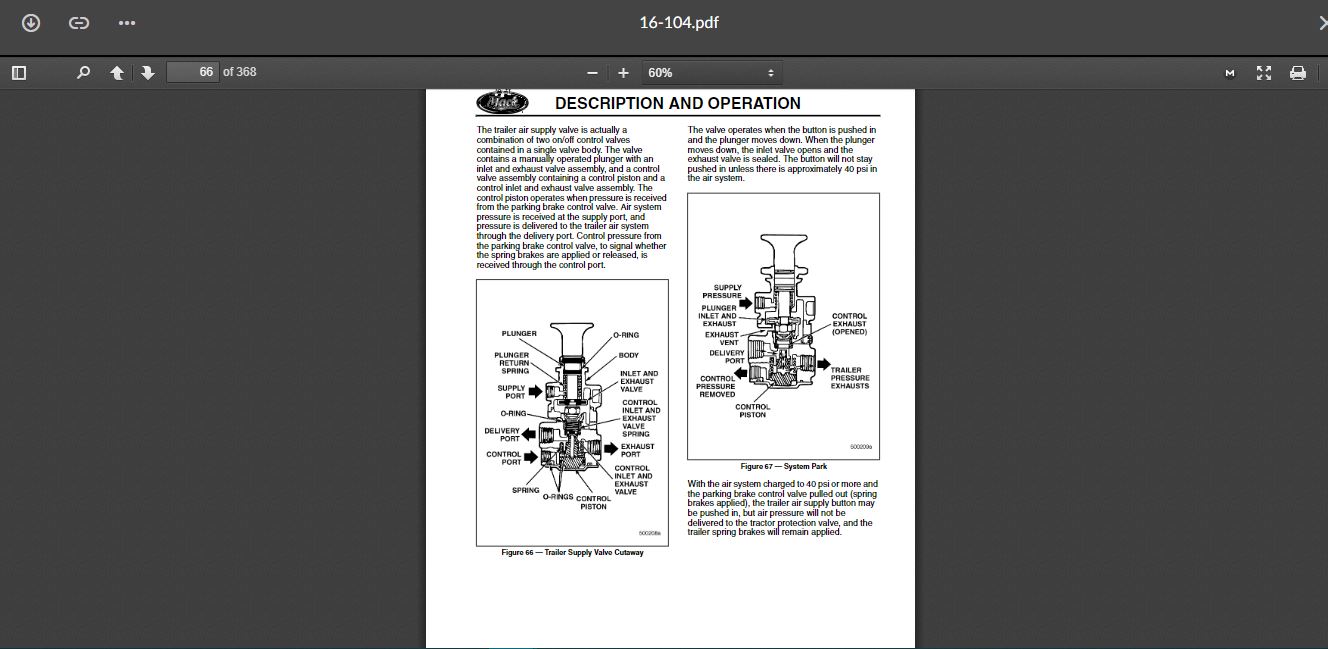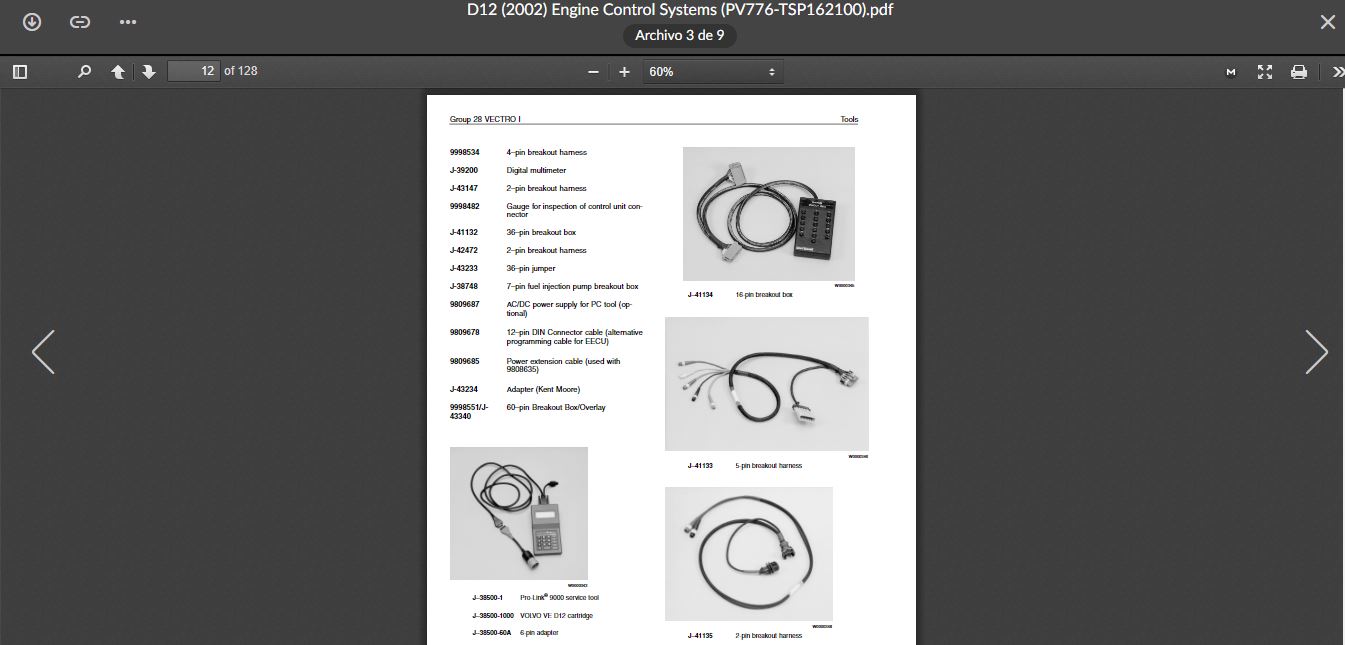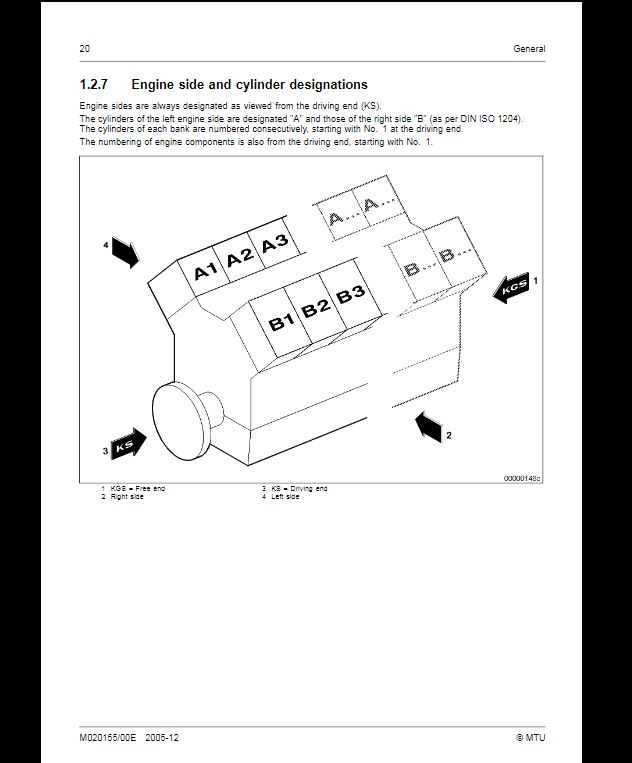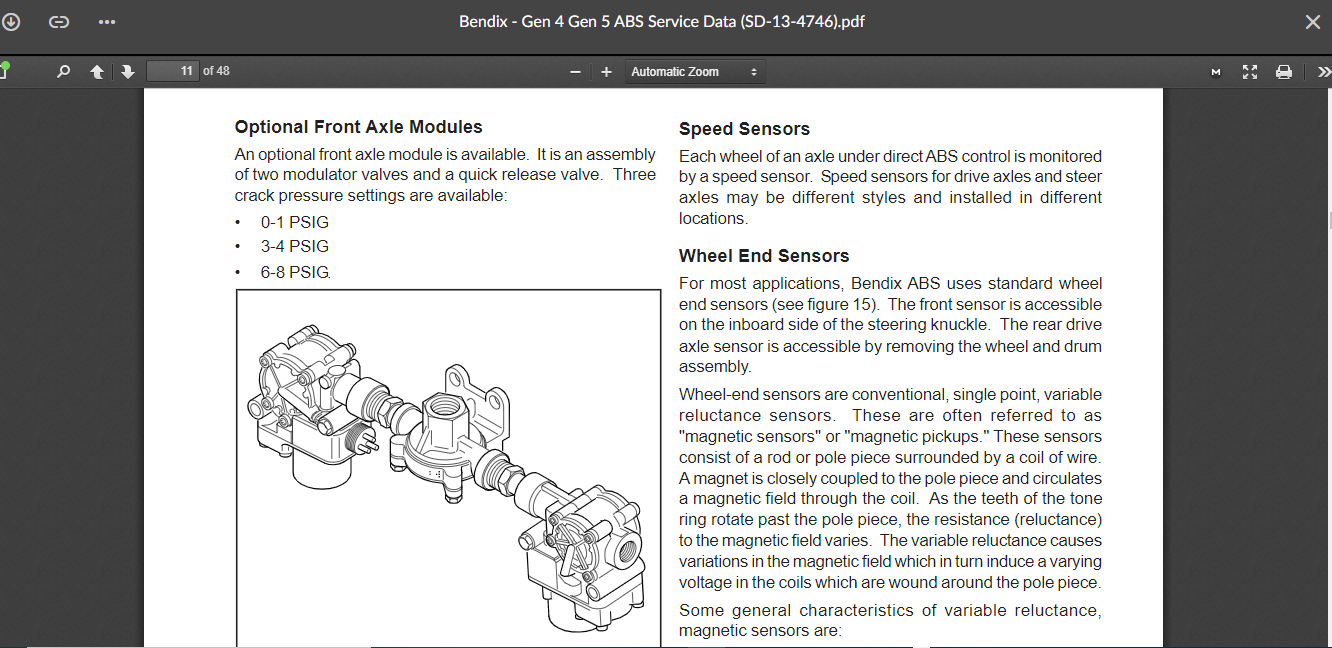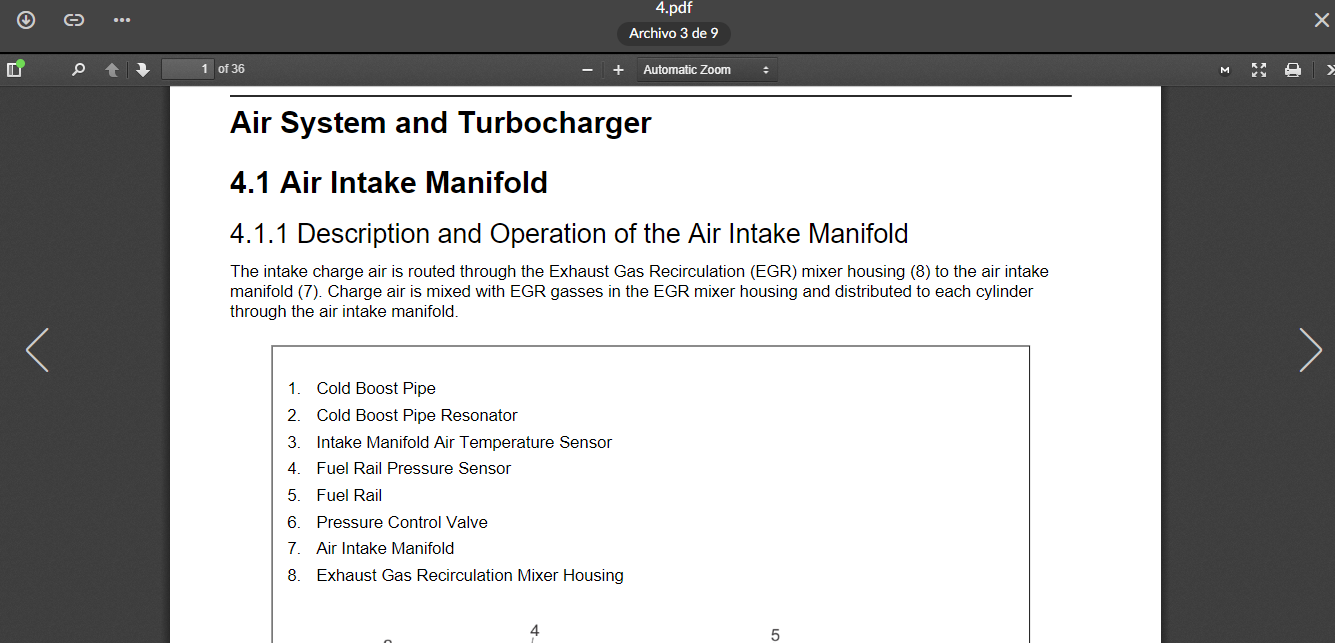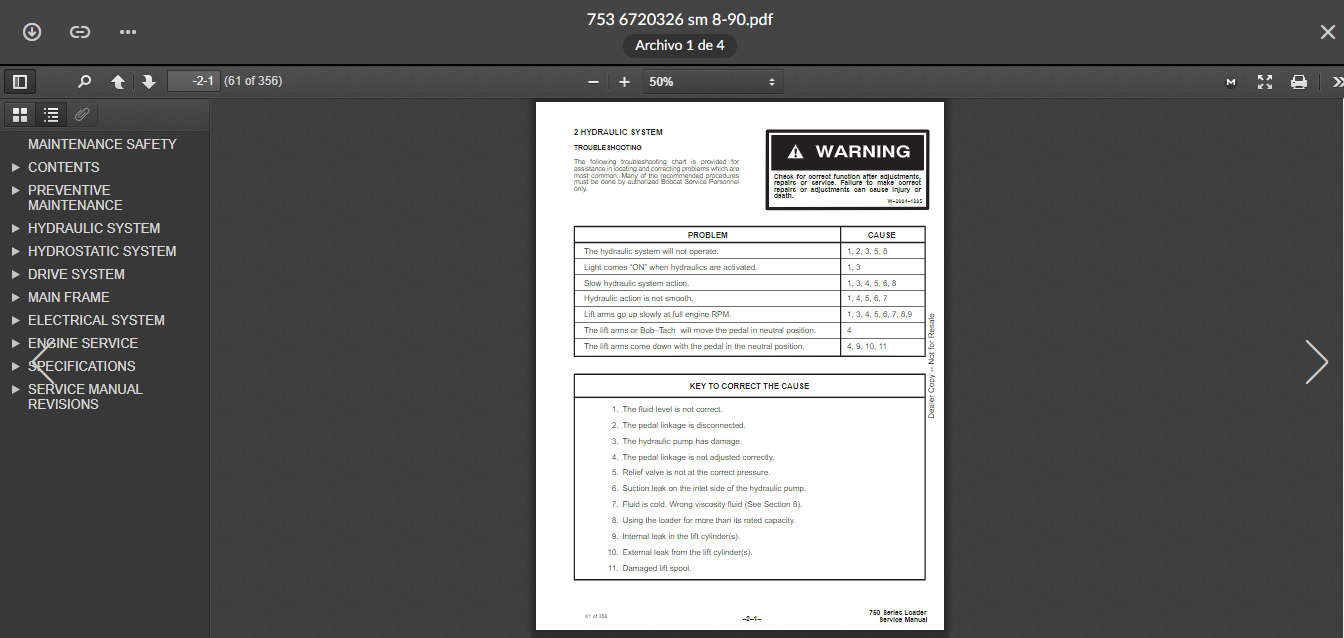Volvo All Engines (2004 Emissions) Fault Code: PID 110 FMI 5 Engine Coolant Temperature Sensor
Fault Condition: The Electronic Malfunction Lamp (EML) will turn on and Parameter Identification Code (PID) code P110 will set with Failure Mode Identifier (FMI) code 4 if the EMS Module senses that the ECT Sensor signal voltage is less than .17 volts. FMI code 5 will set if the ECT Sensor signal voltage is greater than 4.92 volts. If the EMS Module senses that the ECT Sensor signal is critically above range (219°F [104°C]), FMI code 0 will be set.
Possible repairs:
Turn the ignition key OFF first.
1) Disconnect the Engine Coolant Temperature (ECT) Sensor connector. Check for continuity between either pin of the ECT Sensor and a good ground. If continuity exists, replace the ECT Sensor.
2) Disconnect the Engine Coolant Temperature (ECT) Sensor connector. Disconnect connector B from the EMS Module. Connect a jumper between EMS Module harness connector B pins 18 and 27. Check for continuity between pins Black 3874 and Brown 3876 of the ECT Sensor harness connector. If there is NO continuity, there is an open ground circuit in the harness between the common ground splice to the ECT Sensor Sensor and the EMS Module. Locate and repair the open circuit.
3) Disconnect the Engine Coolant Temperature (ECT) Sensor connector. Measure the resistance across the pins of the ECT Sensor. If the resistance of the sensor is out of range or NOT within normal operating parameters (45313 to 71 ohms), replace the sensor.
4) Disconnect the Engine Coolant Temperature (ECT) Sensor connector. Disconnect connector B from the EMS Module. Measure the voltage between EMS Module connector B pin 18 and a good ground. If there is more than 0.5 volts present, there is a short circuit to voltage in the sensor return line. Locate and repair the short circuit to voltage.
5) If dirt, looseness, or deformed contacts are found, or the pin feels loose, repair EMS Module harness connector B.
6) Disconnect the ECT Sensor connector. Disconnect EMS Module connector B. Check for continuity between pin Brown 3876 of the ECT Sensor harness connector and EMS Module harness connector B pin 27.
If there is NO continuity, locate and repair the open signal circuit between the ECT Sensor harness connector and EMS Module harness connector B pin 27.
7) Disconnect the ECT Sensor connector. Disconnect EMS Module connectors A and B. Check for continuity between EMS Module harness connector B pin 27 and all other pins on EMS Module harness connectors A and B.
If continuity exists, the signal line is shorted to one of the other EMS Module circuits. Locate and repair the short circuit. If there is NO continuity, the signal line is shorted to ground somewhere else in the harness. Locate and repair the short circuit to ground.
8) Disconnect the ECT Sensor connector. Connect connector B to the EMS Module. Turn the ignition key ON. Measure the voltage at pin Brown 3876 of the ECT Sensor harness connector and a good ground.
If the measured voltage is between 4.5 and 5.5 volts, check the ECT Sensor harness connector for deformed pins or insufficient contact with the ECT Sensor pins.
9) Connect the ECT Sensor connector. Connect EMS Module harness connector B to the EMS Module. Turn the ignition key ON. If code P110 is still active, replace the EMS Module and retest the system.
If code P110 is NOT active, the procedures have corrected the problem. Check all connectors to ensure proper connections.
10) Connect the ECT Sensor connector. Connect connector B to the EMS Module. Turn the ignition key ON. If code P110 is still active, check the EMS Module and connectors A and B for dirt, loose or shorted pins, or any other
repairable damage. If no problems are evident, or are NOT repairable, replace the EMS Module and retest the system.
11) Disconnect the ECT Sensor connector. Disconnect EMS Module connector B. Check for continuity between EMS Module harness connector B pin 27 and all other pins on EMS Module connector B. If continuity exists, the signal line is shorted to one of the other EMS Module circuits. Locate and repair the short circuit to voltage, then replace the sensor. If there is NO continuity, the signal line is shorted to voltage somewhere else in the harness. Locate and repair the short circuit to voltage.
Related
-
VOLVO PREMIUM TECH TOOL PTT 2.7.30 Developer + Devtool + INSTALATION VIDEO!
Trucks software $60.00Rated 0 out of 5 -
premium volvo tech tool update 2.8.150 diagnostic software 1pc
Trucks software $150.00Rated 0 out of 5
-
Scania SDP3 2.48.6 Diagnosis & Programming for VCI 3 VCI3 without Dongle
Scania $30.00Rated 0 out of 5 -
Volvo Premium Tech Tool PTT 2.8.130 Diagnostic Software 04.2022 ACPI ( 1 PC )
Trucks software $143.00Rated 0 out of 5 -
download MANCATS II v14.01 2014 Diagnostic software MAN CATS ( virtual machine )
MAN $75.00Rated 0 out of 5
Related products
-
Allison 1000 & 2000 Gen 4 Fault Codes: P2773 Torque Control Request Ignored – ECM/TCM
1000 & 2000 Gen 4 $50.00Rated 0 out of 5 -
Allison 1000 & 2000 Gen 4 Fault Codes: P0880 TCM Supply Voltage
1000 & 2000 Gen 4 $50.00Rated 0 out of 5 -
Allison 1000 & 2000 Gen 4 Fault Codes: P0870 Transmission Pressure Switch Solenoid E Circuit
1000 & 2000 Gen 4 $50.00Rated 0 out of 5 -
Allison 1000 & 2000 Gen 4 Fault Codes: U2105 CAN Bus ECM Error
1000 & 2000 Gen 4 $50.00Rated 0 out of 5 -
Allison 1000 & 2000 Gen 4 Fault Codes: U1064 J1850 (Class 2) TBC Controller State of Health Failure
1000 & 2000 Gen 4 $50.00Rated 0 out of 5 -
Allison 1000 & 2000 Gen 4 Fault Codes: U1300 J1850 (Class 2) Serial Data Communication Link Low
1000 & 2000 Gen 4 $50.00Rated 0 out of 5 -
Allison 1000 & 2000 Gen 4 Fault Codes: U1000 Class 2 Loss of Serial Data Communication
1000 & 2000 Gen 4 $50.00Rated 0 out of 5 -
Allison 1000 & 2000 Gen 4 Fault Codes: P0123 Pedal Position Sensor Circuit High Voltage
1000 & 2000 Gen 4 $50.00Rated 0 out of 5 -
Allison 1000 & 2000 Gen 4 Fault Codes: P0872 Transmission Pressure Switch Solenoid E Circuit Stuck Closed
1000 & 2000 Gen 4 $50.00Rated 0 out of 5 -
Allison 1000 & 2000 Gen 4 Fault Codes: P0848 Transmission Pressure Switch Solenoid D Circuit High
1000 & 2000 Gen 4 $50.00Rated 0 out of 5 -
Allison 1000 & 2000 Gen 4 Fault Codes: U0032 J1850 (Class 2) Serial Data Communication Link High
1000 & 2000 Gen 4 $50.00Rated 0 out of 5 -
Allison 1000 & 2000 Gen 4 Fault Codes: P0122 Pedal Position Sensor Circuit Low Voltage
1000 & 2000 Gen 4 $50.00Rated 0 out of 5 -
Allison 1000 & 2000 Gen 4 Fault Codes: P1892 Throttle Position Sensor Pulse Width Modulation (PWM) Signal High Input
1000 & 2000 Gen 4 $50.00Rated 0 out of 5 -
Allison 1000 & 2000 Gen 4 Fault Codes: P2771 Four-Wheel Drive Switch Circuit
1000 & 2000 Gen 4 $50.00Rated 0 out of 5


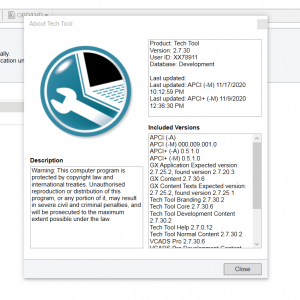






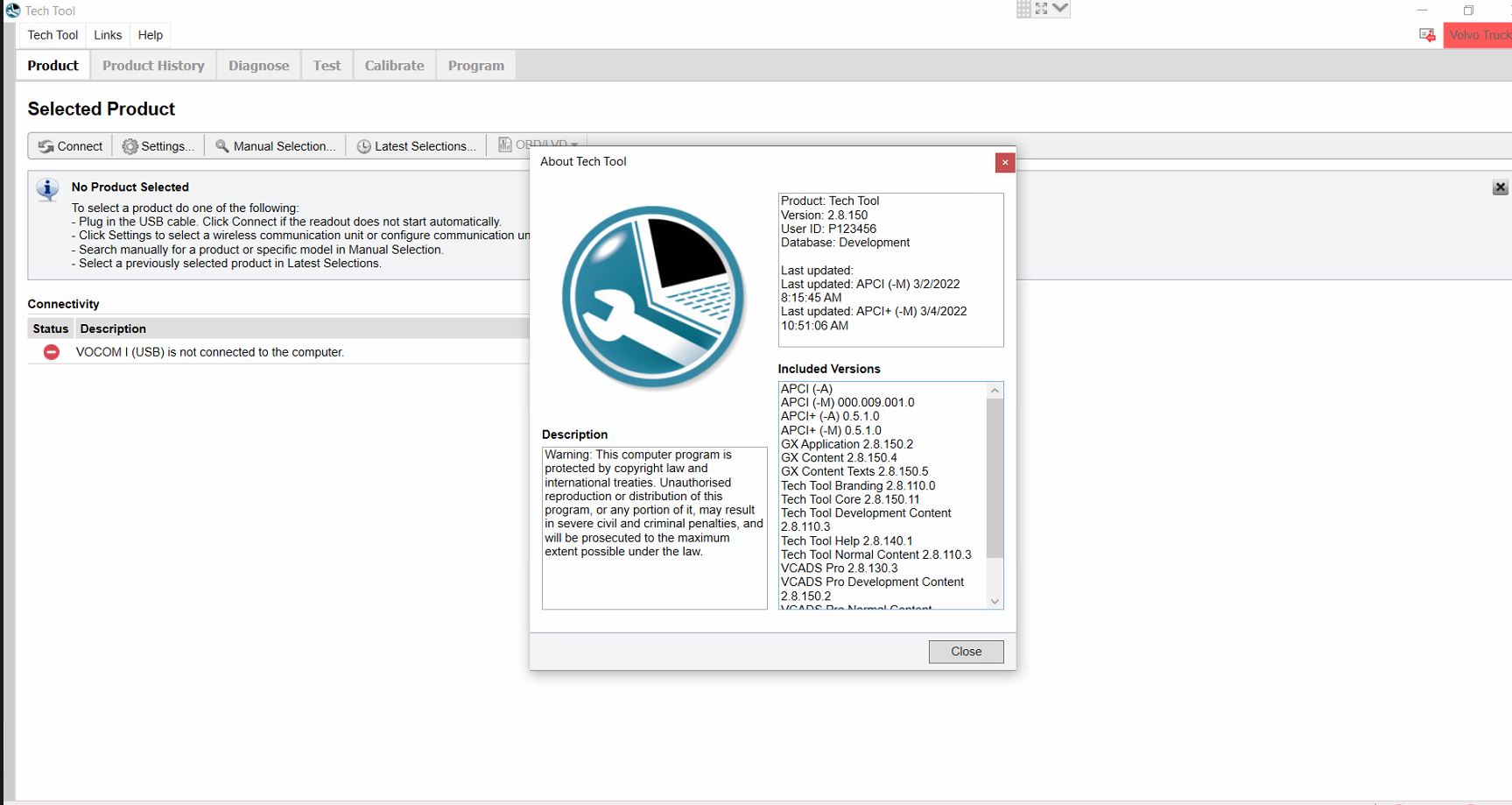



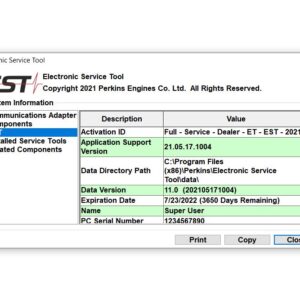






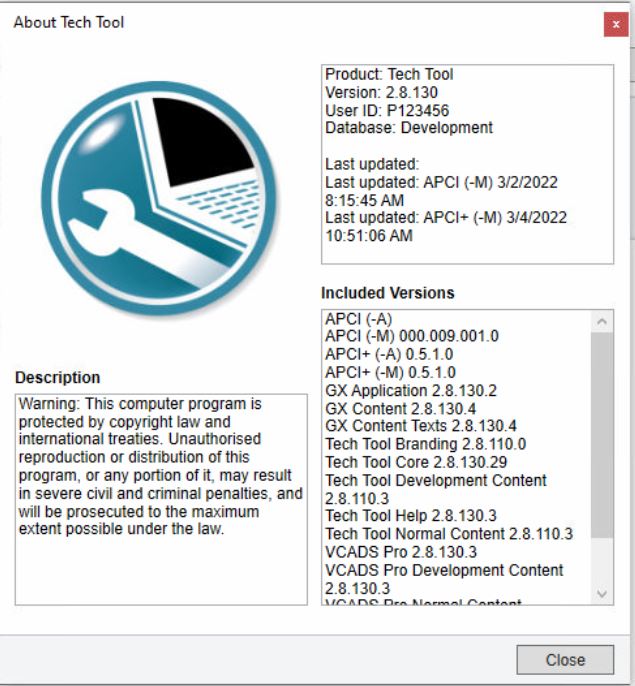


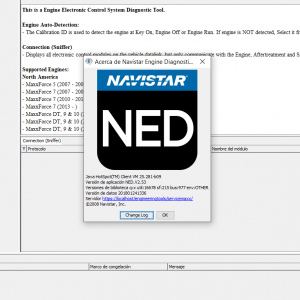

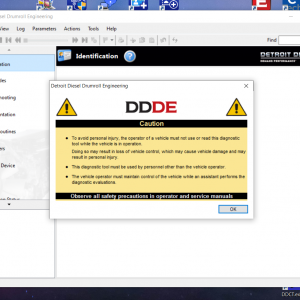

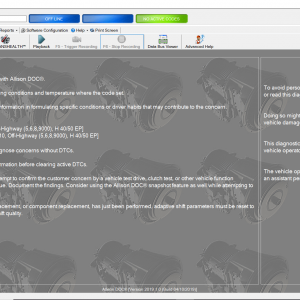
![JOHN DEERE PARTS ADVISOR & HITACHI 2.24.2 [2023.07] - ECUFORCETRUCK EPC](https://i0.wp.com/www.ecuforcetruck.com/wp-content/uploads/2023/09/1.png?resize=300%2C300&ssl=1)
![JOHN DEERE PARTS ADVISOR & HITACHI 2.24.2 [2023.07] - ECUFORCETRUCK EPC](https://www.ecuforcetruck.com/wp-content/uploads/2023/09/2.png)

